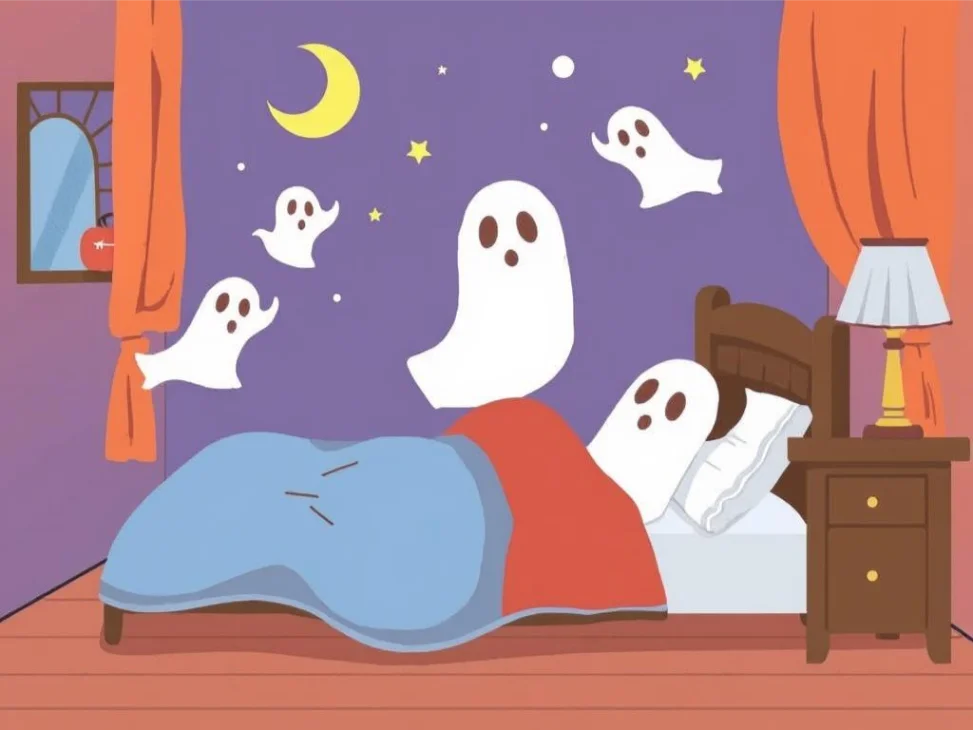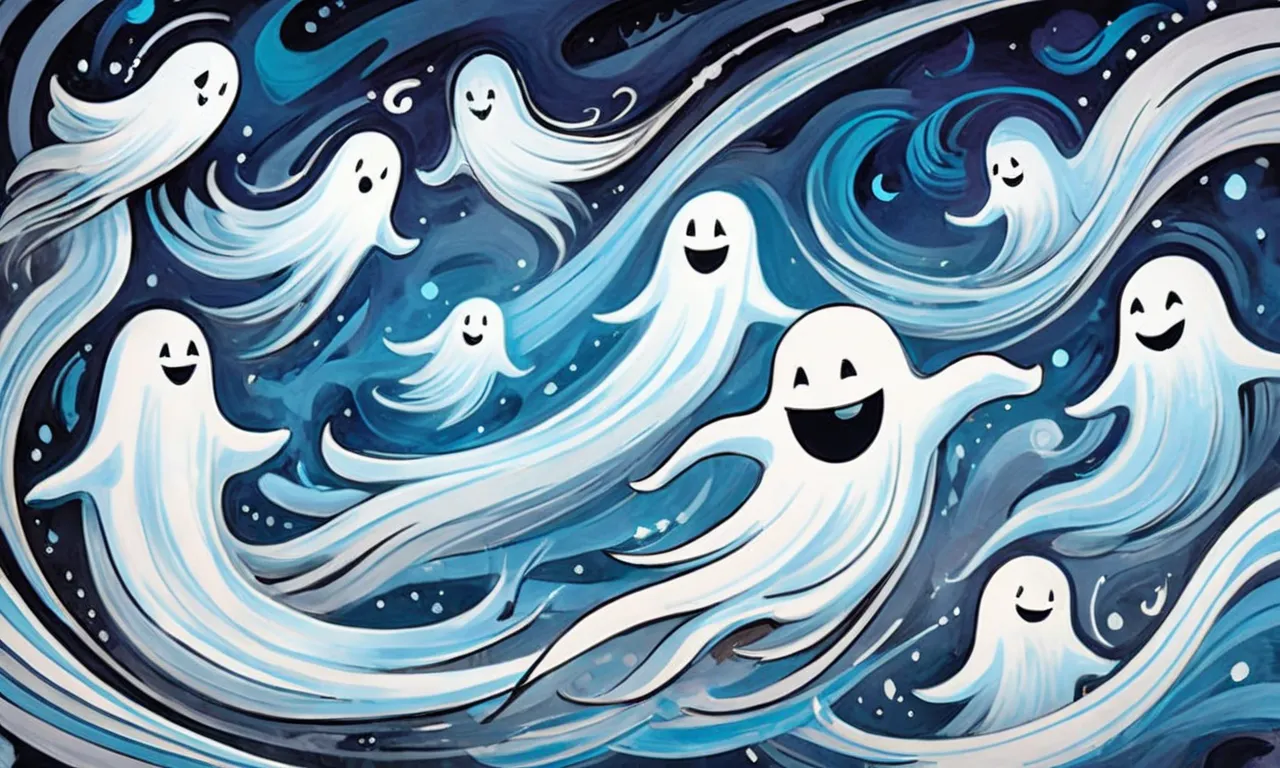What Do Dreams About Ghosts Mean? A Comprehensive Guide to Ghostly Dreams
Dreams can be mysterious, haunting, and deeply symbolic, leaving us puzzled about their meanings. Among the many types of dreams, those involving ghosts or spirits stand out due to their often eerie and unsettling nature. If you’ve been wondering, “What do dreams about ghosts mean?”, you’re in the right place. In this article, we’ll unravel the symbolism behind ghost-related dreams, explore their potential interpretations, and offer insights on how they reflect on your waking life.
Understanding Ghost Dreams: A Symbol of the Invisible
Before diving into the possible meanings, it’s essential to understand the symbolic nature of ghosts in general. Ghosts are often regarded as representations of the unseen, the unresolved, and the spiritual. These dream scenarios might arise during emotionally charged periods in your life, when past events, regrets, or even anxiety over the unknown resurface.
When ghosts appear in your dreams, they can signify:
- Unresolved emotions or trauma.
- Lingering connections with the past.
- A sense of fear or forewarning.
- Transitions in life or spirituality.
Each dream is unique and personal. To decode the specific symbolism of ghosts in your dreams, let’s explore some of the most common interpretations in detail.
Breaking Down the Meaning Behind Ghost Dreams

1. Longing for Closure
Ghosts often represent unfinished business. Dreaming about a ghost may indicate unresolved issues in your waking life, whether emotional or practical. For example, the ghost could symbolize:
- Regret over words left unsaid.
- Painful memories you’re unable to let go of.
- A person or situation from the past that still influences you.
This type of dream might be your subconscious urging you to confront those unresolved matters and find closure.
2. Facing Your Fears
A ghost in your dream could also symbolize fear—fear of change, fear of commitment, or even fear of death. Ghosts are often perceived as frightening or ominous, reflecting the inner anxieties you’re grappling with. These dreams may serve as a reminder to confront and work through your fears instead of avoiding them.
3. Attachment to the Past
If the ghost in your dream feels familiar (e.g., a deceased loved one or someone from your past), it could reflect your emotional attachment to that person or memory. Such dreams might signal an emotional bond that you haven’t fully processed, whether that involves grief, love, or guilt.
4. A Call to Let Go
On a spiritual level, dreaming about ghosts often symbolizes the need to let go of the past. It could be your subconscious telling you it’s time to move forward and release yourself from the burdens holding you back.
Types of Ghost Dreams and Their Interpretations
Not all ghost dreams are alike. Depending on the setting, emotions, and actions within the dream, the meanings can differ significantly. Here’s a closer look at some common ghost-related dream scenarios:
Dreaming of Being Haunted
If you’re being haunted or chased by a ghost, this could mean you’re unable to escape a pressing issue in your waking life. Feeling haunted may symbolize unaddressed guilt, an unresolved relationship, or the pressure of something you’re avoiding.
Seeing a Ghost of Someone You Know
If the ghost resembles a familiar person—whether it’s a deceased relative, friend, or someone alive—it may represent your lingering connection with that individual. It can also symbolize attributes or lessons tied to that person, which your subconscious mind wants you to reflect upon.
Talking to a Ghost
Speaking to a ghost in your dream might symbolize your attempt to understand past events or bridge the gap between your present and subconscious mind. Pay attention to what the ghost says—their words might provide clues about what needs your attention.
Becoming a Ghost in a Dream
If you dream of yourself as a ghost, it often reflects feelings of detachment or invisibility in your waking life. This dream might symbolize that you feel overlooked, unheard, or disconnected from important relationships. Alternatively, it could signify your contemplation of legacy, and how others perceive you.
Table of Similar Dreams and Their Meanings
Here’s a quick reference table to compare ghost dreams with other similar vivid dreams:
| Type of Dream | Common Interpretation |
|---|---|
| Dreams About Spirits | Linked to spiritual guidance, intuition, or a connection to the divine. |
| Dreams of Haunted Houses | Represents inner fears, hidden emotions, or past trauma you need to explore or confront. |
| Dreams About Death | Often symbolizes transformation, change, or the end of one phase and the beginning of another. |
| Talking to Dead Relatives | Indicates unfinished conversations, unprocessed grief, or a desire for closure. |
| Dreams About Shadows | Signifies facing your “shadow self” or hidden aspects of your personality. |
This table highlights how ghost dreams share thematic elements with other spiritual or fearful dream scenarios.
Why Are Ghost Dreams So Common?
Ghost dreams occur more frequently than you might think, and they resonate particularly during times of emotional or psychological upheaval. Several factors contribute to their prevalence:
- Unresolved Grief or Loss: When dealing with the death of a loved one, these dreams may help you process your emotions.
- Guilt or Regret: Ghosts can appear when you’re weighed down by unresolved feelings of guilt.
- Fear of the Unknown: Ghosts are often associated with mystery and uncertainty, making them a popular motif in dreams reflecting anxiety.
What Can You Learn From Ghost Dreams?
Ghost dreams are rarely random. They often carry important messages about both your subconscious mind and your emotional state. Here’s what your dream could be communicating:
1. Self-Reflection
These dreams can shine a spotlight on aspects of yourself that you’re suppressing or neglecting. For instance, a ghost might represent parts of your personality or past that you’ve yet to integrate or fully accept.
2. Let Go of Emotional Baggage
If a ghost represents unresolved issues or stale emotions, the dream is pushing you to work through them and let go.
3. Seek Guidance or Closure
Whether it’s finding closure for yourself or acting on unfinished emotional matters, ghost dreams often point toward healing and resolution.
How to Respond to Ghost Dreams
Unlike daytime fears, nightmares and disturbing dreams are an unfiltered way for your mind to communicate with you. If you find yourself frequently dreaming about ghosts, consider these steps:
1. Pay Attention to Details
Record the key elements of the dream—Was it someone you knew? How did the encounter make you feel? Understanding the nuances will provide greater insight into its interpretation.
2. Acknowledge Your Emotions
Don’t ignore how the dream made you feel. Strong emotions like fear, sadness, or curiosity during the dream can offer vital clues about your waking life situation.
3. Engage in Journaling or Reflection
Processing your emotions and experiences in writing can help clarify what your subconscious mind is trying to tell you. Journaling daily can also reveal patterns.
4. Seek Closure Intentionally
If the dream relates to a situation in your past, strive to resolve or make peace with that event. Whether it’s through therapy, meditation, or heartfelt conversation, healing past wounds is a powerful act.
Spiritual Dimensions: Ghost Dreams and Symbolism
For those who lean toward spiritual or mystical beliefs, ghost dreams carry additional meaning. In many cultures, dreaming of a ghost is believed to signal:
- A message from the spiritual realm.
- A sign of your spiritual awakening.
- Warnings or insights about your life path.
Whether or not you subscribe to spiritual interpretations, the presence of ghosts in dreams often signals a deeper internal dialogue about your life, spirituality, and emotional health.
Conclusion: What Do Dreams About Ghosts Mean?
Ghost dreams are deeply personal, yet they often share universal themes. Whether they signify unresolved feelings, spiritual messages, or internal fears, they invite you to confront important aspects of your life. Instead of fearing these dreams, embrace them as opportunities for growth and reflection.
By interpreting and responding to ghost dreams consciously, you can unlock their powerful messages and bring healing and clarity to your waking life. So, the next time a ghost appears in your dream, ask yourself: What is my subconscious trying to tell me?






